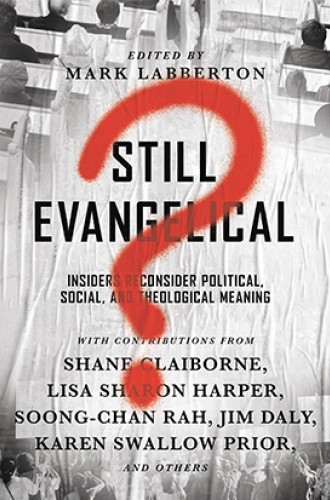The many perspectives of American evangelicalism
A new book of essays shows that evangelicals aren't all the same culturally or politically. So what's holding them together?
Is the evangelical movement still of any use? Is the term evangelical meaningful? After 80 percent of white evangelical Christians voted for Donald Trump for president, some of the other 20 percent (as well as most nonwhite evangelicals) are considering these questions. How could a faith tradition devoted to the transforming power of the gospel align itself so readily with a racially divisive bully whose life has been unashamedly devoted to greed and self-promotion?
Part of the explanation, writes Mark Labberton, president of (evangelical) Fuller Theological Seminary, is that popular evangelicalism has become “an amalgam of theological views, partisan political debates, regional power blocks, populist visions, racial biases, and cultural anxieties, all mixed in an ethos of fear.” The underlying problem, says Labberton in his useful introduction, is that for many people evangelical no longer refers to a set of theological commitments but to a “theo-political brand.”
Read our latest issue or browse back issues.
As the title suggests, this collection of essays is conceived as a series of reaffirmations: “I’m still evangelical, despite . . . [insert here whatever problem you wish to identify].” A common refrain of several contributors is that there’s nothing wrong with evangelicalism that can’t be cured by a bigger dose of the evangel. If evangelicals really loved Jesus and allowed the Holy Spirit to act in their lives, they’d be more humble, less divisive, more winsome, less partisan. That’s a deeply evangelical way of framing the issue.
What holds evangelicals together, apart from a set of political or cultural positions? The classic theological definition invoked by several writers is that devised by historian David Bebbington, who says evangelicals are marked by a conversionist view of faith (“born again”); a substitutionary understanding of Jesus’ crucifixion; a strong view of scriptural authority; and an activist impulse to share the faith. None of the authors takes issue with those formulations or seems interested in exploring them. Their concern throughout, stated with varying degrees of passion and specificity, is to reaffirm a version of that faith that is not entirely beholden to a narrow or harsh political agenda.
Not surprisingly, the sharpest critiques and most hesitant affirmations of evangelicalism come from nonwhite contributors. Lisa Sharon Harper, an African American activist who works at Sojourners, recounts attending a mostly white evangelical conference on the theme of justice and finding it had “absolutely no connection to the ongoing struggles of African Americans, poor people, women, immigrants, and the LGBT community.”
Soong-Chan Rah, a specialist on multicultural urban ministries who teaches at North Park University, complains about the “dysfunctional imagination” of white evangelicals, who are “more beholden to a culturally formed theology drawn from a particular context rather than from actual engagement with scripture and the person and work of Jesus.” Rah points to the career of black evangelical Tom Skinner, whose theological profile was impeccably evangelical but who, Rah says, was shunned by white evangelicals for being outspoken on racial issues.
Allen Yeh, an Asian American who teaches missions and intercultural studies at Biola University, uses his essay to celebrate the theological creativity of Christians in Africa and Asia and to question the categories of Western white evangelicals. “There is no ‘absolute theology’ any more than there is an ‘absolute culture.’”
It’s striking that for the purpose of this book, Harper, Rah, and Yeh are counted as “insiders” of the evangelical world; they sound distinctly like outsiders here, pushing against the white mainstream. Yet in another sense they clearly are insiders, speaking from within major evangelical institutions. Labberton and the editors at IVP obviously knew it would be willfully blind to publish a book on evangelicalism that didn’t include the voices of ethnic and racial minorities, who constitute one-third of the evangelical world.
In that respect, the book is an expression of the evangelical elite—the kind of people interested in a critical discussion of the diversity and future of evangelicalism. Christianity Today editor Mark Galli introduces the term elite in his essay, acknowledging that the class and education gap among evangelicals is significant. He tells of being part of a panel discussion on Trump at a meeting of the Evangelical Press Association in which not a single panelist supported Trump. As was pointed out to him, it was odd for a panel of evangelicals to include no one who represented the views of most evangelicals.
The diversity of American evangelicals and the quarrels within the movement have been rendered stark by Trump’s election, but they hardly arose in 2016. And a presidential election, which gives voters a binary choice, offers a misleading kind of clarity. The finding that 80 percent of whites who call themselves evangelicals voted for Trump does not tell us with what enthusiasm or reluctance they voted, or why, or how they might have been persuaded otherwise.
Curiously, none of the contributors delves into the substantive reasons that evangelicals have cited over the years for heavily supporting Republican candidates—they will protect religious freedom, guard the sacredness of life, champion the traditional family, and limit the malign influence of a secularized government. That way of construing the political choices is challenged by some in the elite evangelical world, but it isn’t directly contested by even the most critical authors in this collection.
The development of that particular theopolitical brand has been the work of political and religious leaders over several decades. Forging a new, culturally dominant version of the evangelical brand will require a similarly determined kind of labor by another set of leaders, and appears unlikely to emerge anytime soon.








